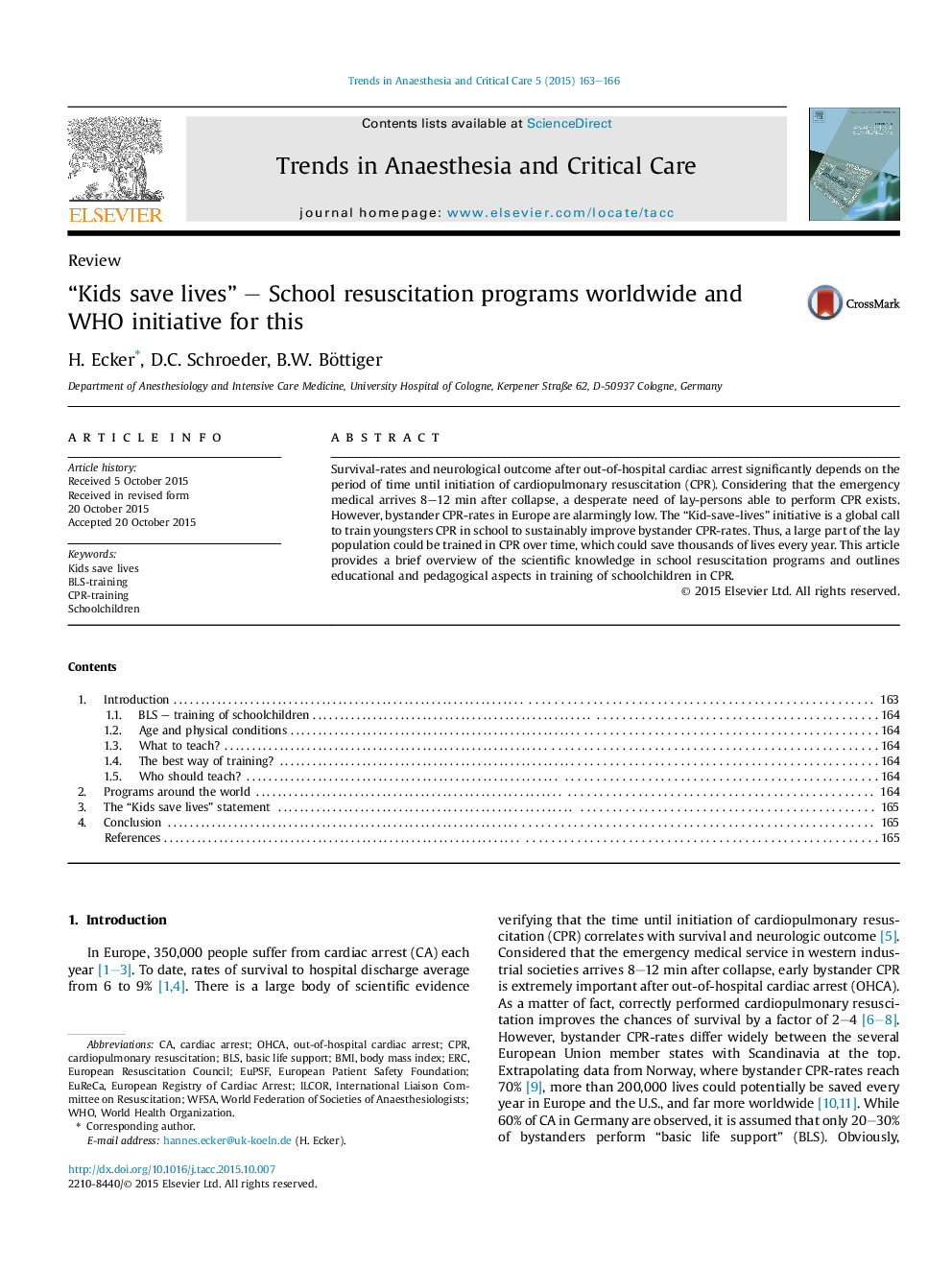| کد مقاله | کد نشریه | سال انتشار | مقاله انگلیسی | نسخه تمام متن |
|---|---|---|---|---|
| 2772577 | 1152078 | 2015 | 4 صفحه PDF | دانلود رایگان |

• Early CPR improves chances of survival by a factor of 2–4 and can safe nearly 200,000 lives every year in Europe.
• Out-of-hospital cardiac arrest survival increased threefold with mandatory BLS-training in Schools in Denmark.
• WHO endorse “Kids save lives” and advises that schoolchildren from the age of 12 should be trained in CPR for 2 h per year.
• Health care providers and teachers can instruct BLS for schoolchildren easy and inexpensive.
• Over time all citizens will act as competent first responders saving lives in cardiac arrest situations.
Survival-rates and neurological outcome after out-of-hospital cardiac arrest significantly depends on the period of time until initiation of cardiopulmonary resuscitation (CPR). Considering that the emergency medical arrives 8–12 min after collapse, a desperate need of lay-persons able to perform CPR exists. However, bystander CPR-rates in Europe are alarmingly low. The “Kid-save-lives” initiative is a global call to train youngsters CPR in school to sustainably improve bystander CPR-rates. Thus, a large part of the lay population could be trained in CPR over time, which could save thousands of lives every year. This article provides a brief overview of the scientific knowledge in school resuscitation programs and outlines educational and pedagogical aspects in training of schoolchildren in CPR.
Figure optionsDownload as PowerPoint slide
Journal: Trends in Anaesthesia and Critical Care - Volume 5, Issue 6, December 2015, Pages 163–166